Interested to visit us?
Our next Open Afternoon is on Friday March 6 from 3.30 - 5pm.
Click the button for all the details and to RSVP.
Education to future-proof the magic of childhood
Sompting Abbotts has no concrete playgrounds. Children enjoy break times playing with their friends in the fresh air in our 30 acres of open grounds and woodlands in all seasons. Research shows freedom of unstructured time in natural space helps children focus and achieve more academically. Learning about wildlife, sustainability and climate change is part of our everyday life – which is why we support the ethos of the Forest School movement.
Sompting Abbotts been educating children since the era of George V
Much has changed in that time. But these principles remain the same:
Class sizes are kept low (average 15*). So we can benefit both our less able and able pupils
Academic excellence means our pupils achieve strong Senior School Scholarship results
We develop character, courtesy and communication skills in our children
Our pupils emerge socially intelligent and confident
A child-focused approach nurtures each pupil’s individual talents
Children have daily opportunities to get immersed in nature and free play in 30 acres of grounds
Pupils enjoy school days full of friendships, fun and laughter.
Ours is a non-selective independent day school for girls and boys aged 2 - 13. It is set within 30 acres of grounds, woodland and wild ponds. Sports offered include rugby, cricket, football, netball, rounders, tennis, archery, fencing and swimming in the heated outdoor pool.
Smaller classes are better for both our less able and more able pupils.
That’s because …
The more able children get the challenge they need to shine.
The 'coasters' are galvanised, and …
The less able or shyer pupils are gently brought on with extra help.
Research by the Education Endowment Foundation shows the smaller the class, the better it is for your child’s progress. It says a small class results in a “greater range of approaches a teacher can employ and amount of attention each student will receive.”
Sompting Abbotts’ policy is to maintain class size limits for the benefit of pupils. Some year groups are full and have a waiting list.
Your child deserves to be stretched
… but gently, not like pizza dough …
Children don’t all develop at the same rate – plateaus are normal – and we recognise this.
Often, the reason a quieter child doesn’t contribute in class is down to self-belief, not disinterest.
In a large setting, when they feel insecure, they find it ‘scary’ to put their hands up. So they let the self-assured ones hold sway.
But with the more relaxed atmosphere of a small class, the teacher can gently make sure every child joins in.
The Department for Education’s ‘Class Size and Education in England Evidence Report’ says: “The evidence base on the link between class size and attainment, taken as a whole, finds that a smaller class size has a positive impact on attainment and behaviour in the early years of school.”
Your child is not ‘just a test score’
Small classes at Sompting Abbotts allow our teachers to:
Manage discipline better
Have space to uncover strengths and weaknesses
Nurture a supportive learning arena
Stretch your child carefully
Teach beyond the National Curriculum targets
Encourage better social and communication skills
Help shy and less confident children feel secure
Give the children better quality feedback and attention
Ellie (Year 8) has achieved a Scholarship to Lancing College. She thinks the small class sizes and dedicated teachers helped her win her scholarship.
Senior School Destinations
*Senior school scholarship results since 2009
Did you know?
Sompting Abbotts achieves a 100% success rate in the Common Entrance exam.
Many pupils achieve public school scholarships and move onto leading independents, including Lancing, Brighton and Hurst Colleges.
Others are well-equipped for their GCSEs at high-performing state schools such as Steyning Grammar (Ofsted outstanding 2019), to which all children attending Sompting Abbotts are entitled for entry.
Stuart Douch, Headmaster
Sompting Abbotts is a traditional school. But in a progressive way. The school harnesses all the opportunities technology creates for learning by our digital natives.
But we still believe the best ‘apps’ for children’s learning are their dedicated teachers!
We focus on developing children who are socially confident, courteous and ambitious about their possibilities in life.
Pupils here receive a high-quality academic education and enjoy a real childhood protected from peer pressures.
With trees to climb, dens to build, conkers to collect and squirrels to spot, our children can really be children. They have lots of opportunities to have old-fashioned fun and to immerse themselves in nature as they enjoy our 30 acres of grounds.
We provide an antidote to a world in which an overly screen-based lifestyle can mean they grow up only too fast…
Small class sizes
Every child at our school receives individualised attention. Smaller classes (average 15) better meet the needs of children’s distinct personality types. They allow the teacher to tailor his or her teaching to your child’s particular learning style, interests and ability level.
Well-rounded education
Many children achieve senior school scholarships and move onto leading independents. We challenge children to develop skills in listening, literacy and numeracy and provide a curriculum with a strong focus on core subjects: English, STEM, History, Geography, Latin and Modern Languages. (French language teaching begins at age 2).
Focus on ‘emotional intelligence’
The Arts are big part of school life. They include Visual Art, Drama and Music. We place strong emphasis on the performing arts and self-expression. In different ways, via school plays, assemblies, debating and school performances, we seek to boost your child’s confidence, social and communication skills. This self-assurance will be invaluable to his or her career ahead.
Class size at Sompting Abbotts averages at 15 children. At primary school, children are still developing the independent learning skills and self-discipline they’ll need for secondary school. It’s at this learning stage small classes give the biggest gain.
“I felt a huge sense of relief I’d found this wonderful place where my children will receive a proper education full of encouragement, ambition, manners and friendships.”
Discover what our pupils say …
Year 8 children talk about their learning experience at Sompting Abbotts
Toby, Year 8, describes how much he’s achieved since joining in Year 2. At Sompting Abbotts, we nurture each child’s strengths and we provide extra SEN help where it’s needed.
Annabelle, Year 8, has won the Ken Shearwood All Rounder Scholarship Award to Lancing College. She benefitted, she says, from small class sizes and "inspiring and supportive" teachers – and she loves climbing the school’s trees!
Your child, their future
The essential foundations and good habits for children's future success are laid down during the crucial primary school years.
This is what Peter Blatchford, Professor of Psychology and Education at the UCL Institute of Education, writes. “Careful moment-by-moment systematic observation of pupils shows that class size affects the amount of individual attention pupils receive, and their engagement and active involvement in class.”
But the real evidence comes for us from our own parents.
"I can't believe how well you know my child," is something at parents evenings we often hear them say.
For us, that’s the greatest proof.
If you’re interested to visit us, our next Open Afternoon is on Friday March 6 from 3.30 - 5pm. Click the button for details.
Our policy is to keep to our maximum class size limit to ensure our pupils receive the individualised education we provide. Some year groups are full and have a waiting list.




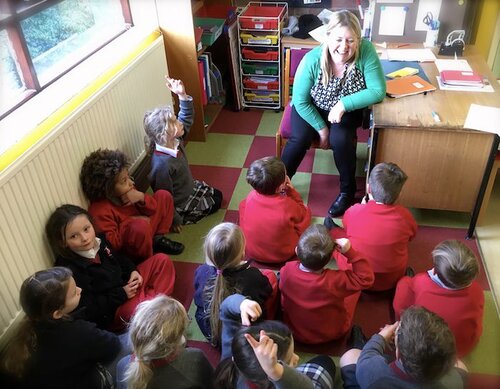





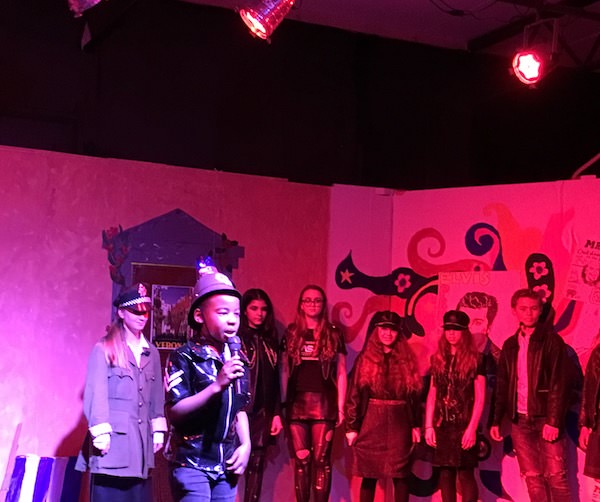




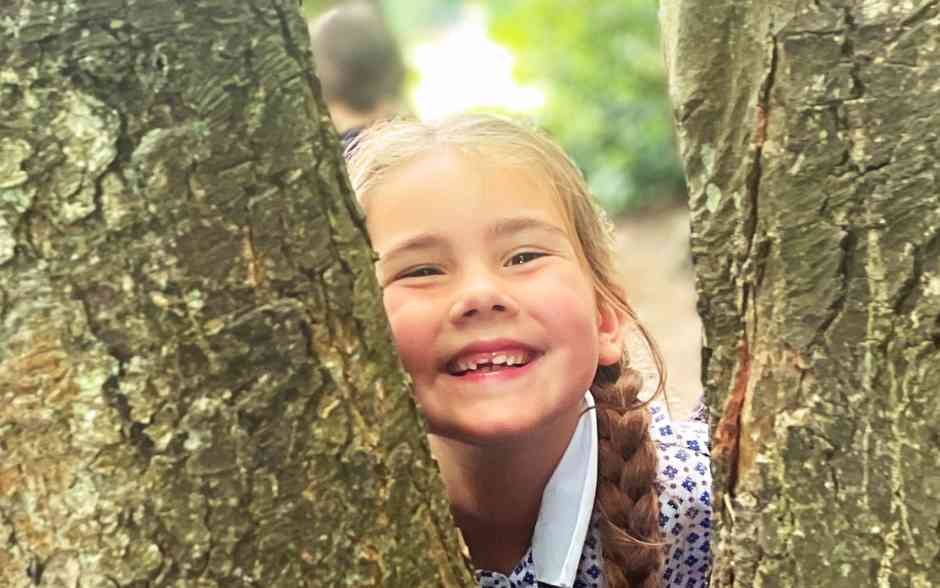
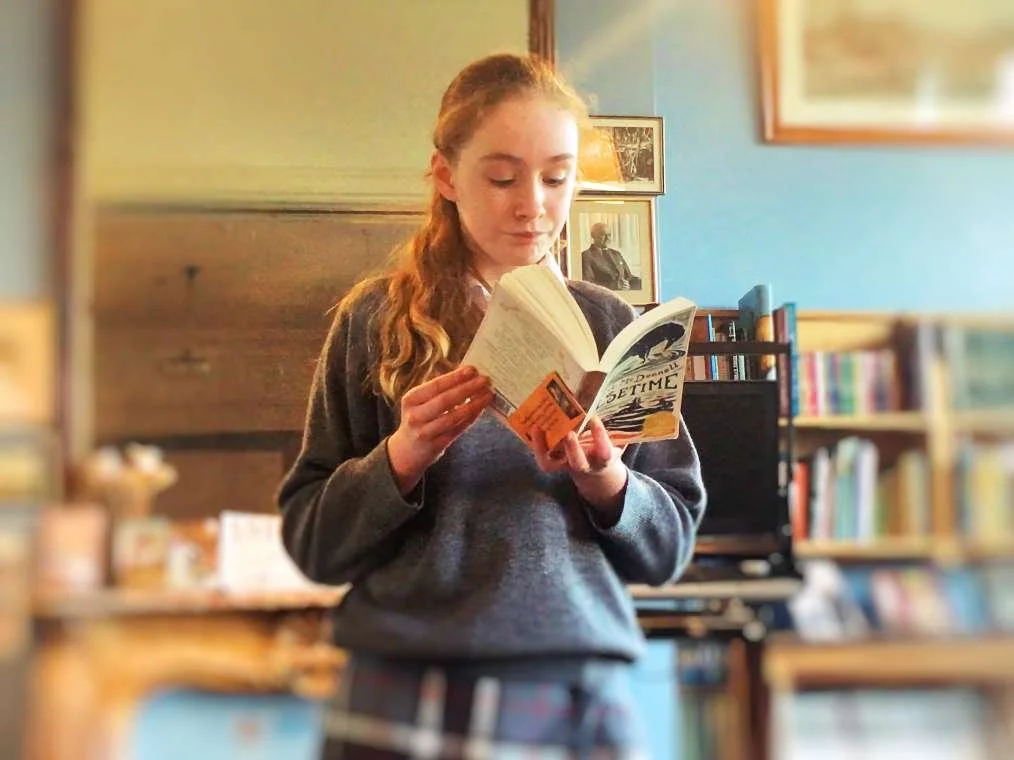















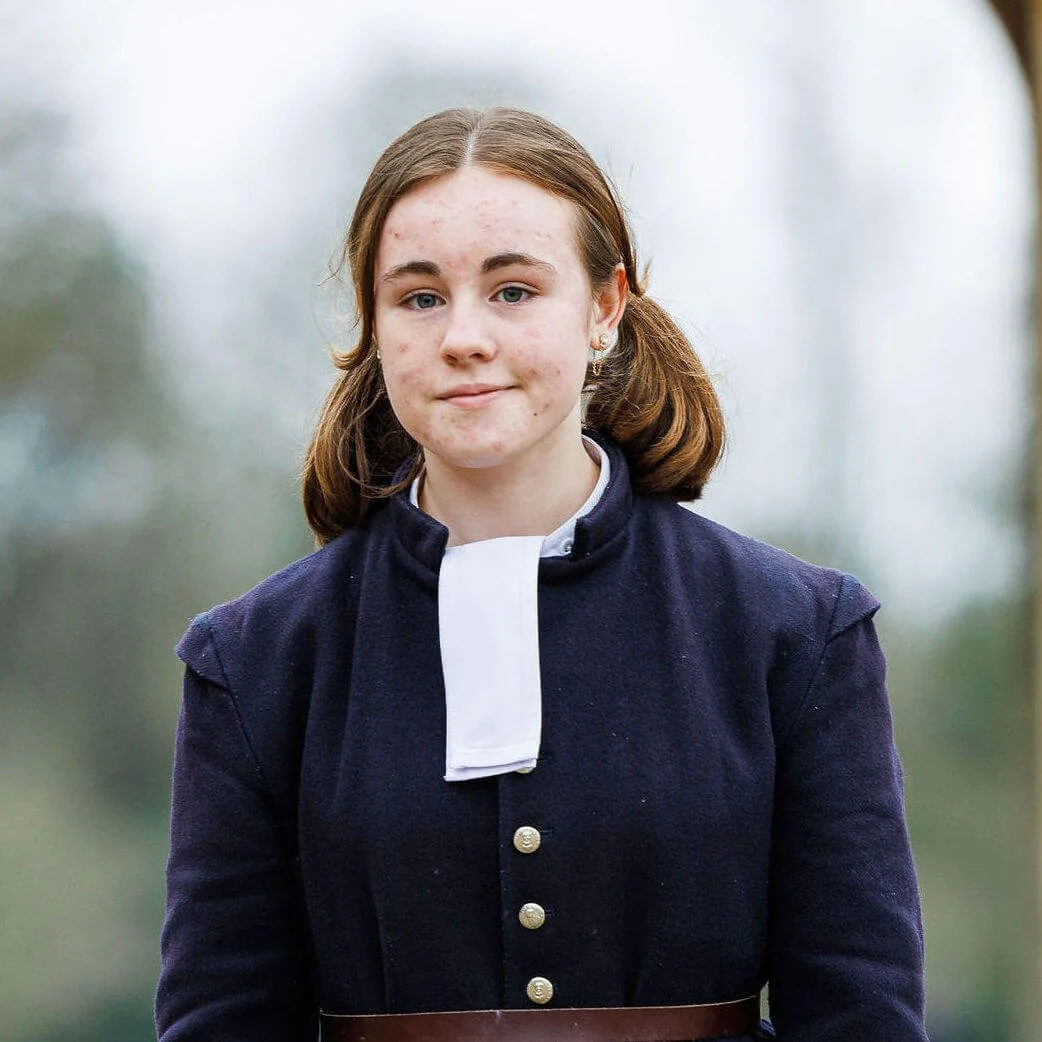
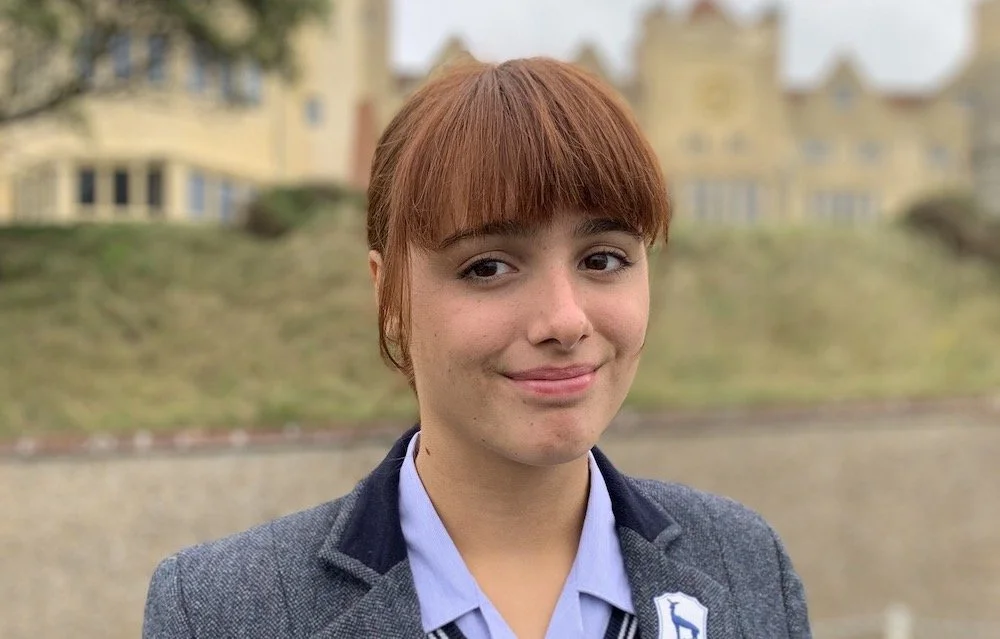




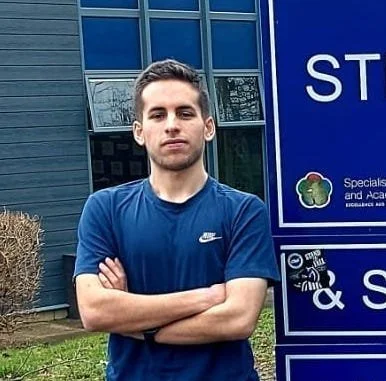





What child doesn’t love to collect handfuls of glossy brown conkers? At Sompting Abbotts, they don't just fill their pockets — even socks become makeshift pouches. And so, at this time of the year, we send the children out into our school grounds to look for shiny conkers (not that they need any persuading).